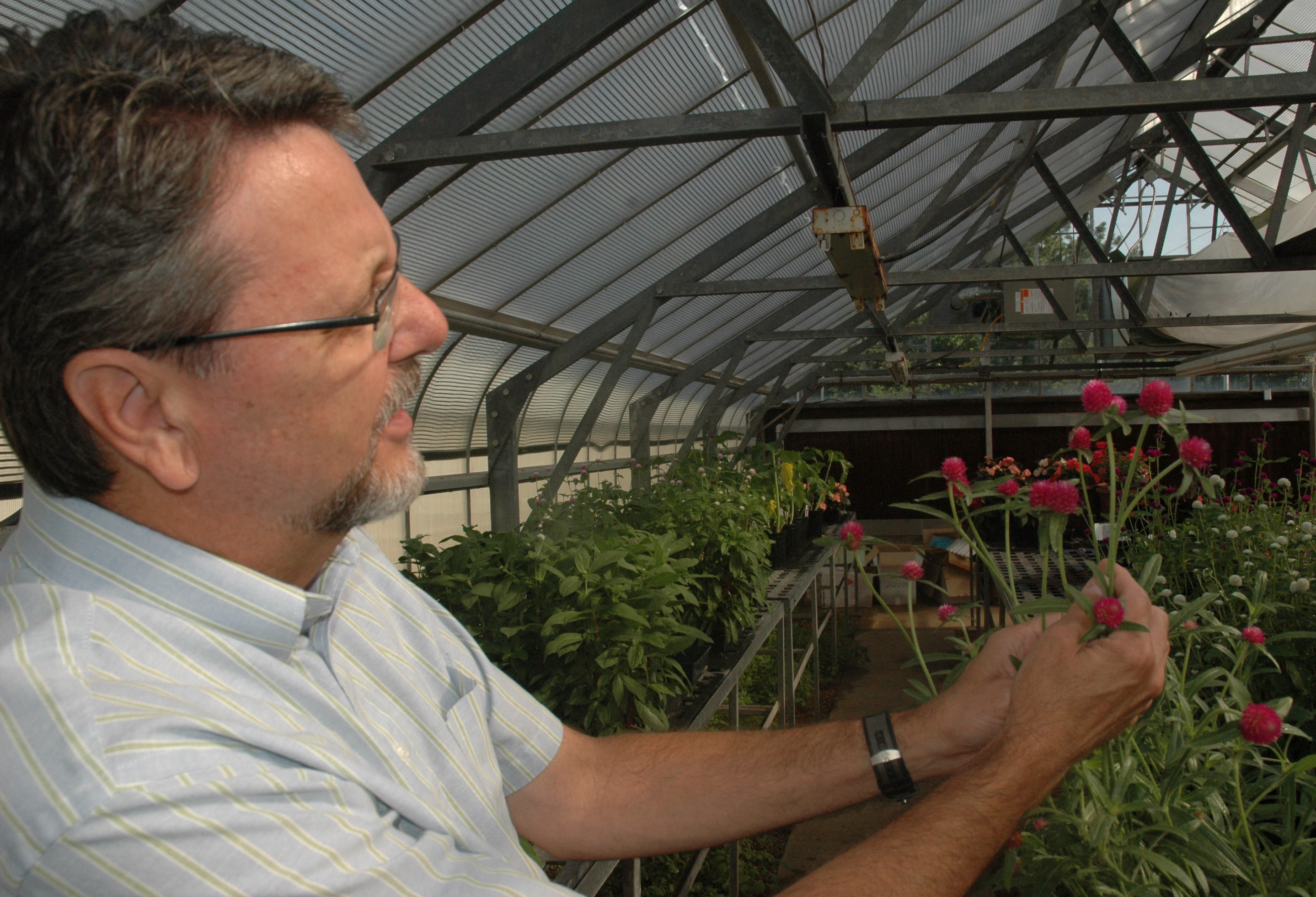College Station, Texas, USA
May 21, 2012
The summer of 2011, with its record-setting high temperatures, proved just how heat tolerant globe amaranth, a new Texas Superstar, actually is, said a Texas AgriLife Research horticulturist.
Globe amaranth (Gomphrena globosa), also known as bachelor buttons, are a garden mainstay that has received renewed attention from industrious plant breeders, said Dr. Brent Pemberton, AgriLife Research horticulturist and chair of the Texas Superstar executive board. As a result of that attention, there is a “broader color pallet,” various heights and other qualities.

"Fireworks" is a new globe amaranth (Gomphrena globosa) variety that showed off its heat and drought tolerance in trials at the Texas AgriLife Research and Extension Center in 2011. All older gomphrena varieties and some new ones were named Texas Superstars for 2012. (Texas AgriLife Research photo by Robert Burns)
“The new varieties were developed at a really important time because we recently experienced a lot of record heat and drought, and this plant is tolerant to that,” he said. “Now we not only have more colors but varieties of gomphrena that are of different heights.
Texas Superstar plants undergo extensive tests at Overton, Lubbock, San Antonio and College Station by AgriLife Research and Texas AgriLife Extension Service horticulturists, Pemberton said.
To be designated a Superstar, the plant must not just be beautiful but also perform well for consumers and growers throughout Texas. Superstars must also be easy to propagate, which should ensure the plants are not only widely available throughout Texas but also are reasonably priced.
It’s always been known that globe amaranths were very heat tolerant, but that knowledge was largely anecdotal from gardeners observing the plant’s behavior in gardens, Pemberton said. “Now there’s science-based proof based on performance tests during the 2011 heat wave.”
Pemberton started testing bedding plants and ornamentals in 1994 under East Texas conditions with about 100 entries. By 2011, the number of entries had grown to more than 400, and there were 17 globe amaranth varieties among them, he said.
“They were watered, but there are a lot of things that just didn’t make it through despite getting some supplemental water,” Pemberton said. “There are a lot of things that just didn’t make it through the heat but these plants did very well.”
The new varieties are now available ranging in height from 6 inches to 4 feet, and rich purples and pinks have been added to the flower colors that were historically limited to light purple or white.
“Hybridization and selection in the closely related Rio Grande globe amaranth (Gomphrena haageana), a Texas native, has added strawberry red to orange flowers to the mix,” Pemberton wrote in the Superstar board’s official description.
“The button, cylindrical cones, or sparkler-shaped flowers offer season-long color from late spring to frost. Individual flower clusters also have a long duration of effectiveness as it is the straw textured colored bracts that constitute the showy portions of the flowers, lasting long after the tiny reproductive portions of the flowers have senesced,” Pemberton said.
Pemberton also noted that small “seed-feeding birds find the tiny amaranth seeds irresistible and are attracted to the plants in small flocks.”
Texas Superstar is a registered trademark owned by AgriLife Research, a state agency that is part of the Texas A&M University System. More information about the Texas Superstar program can be found at http://texassuperstar.com/.